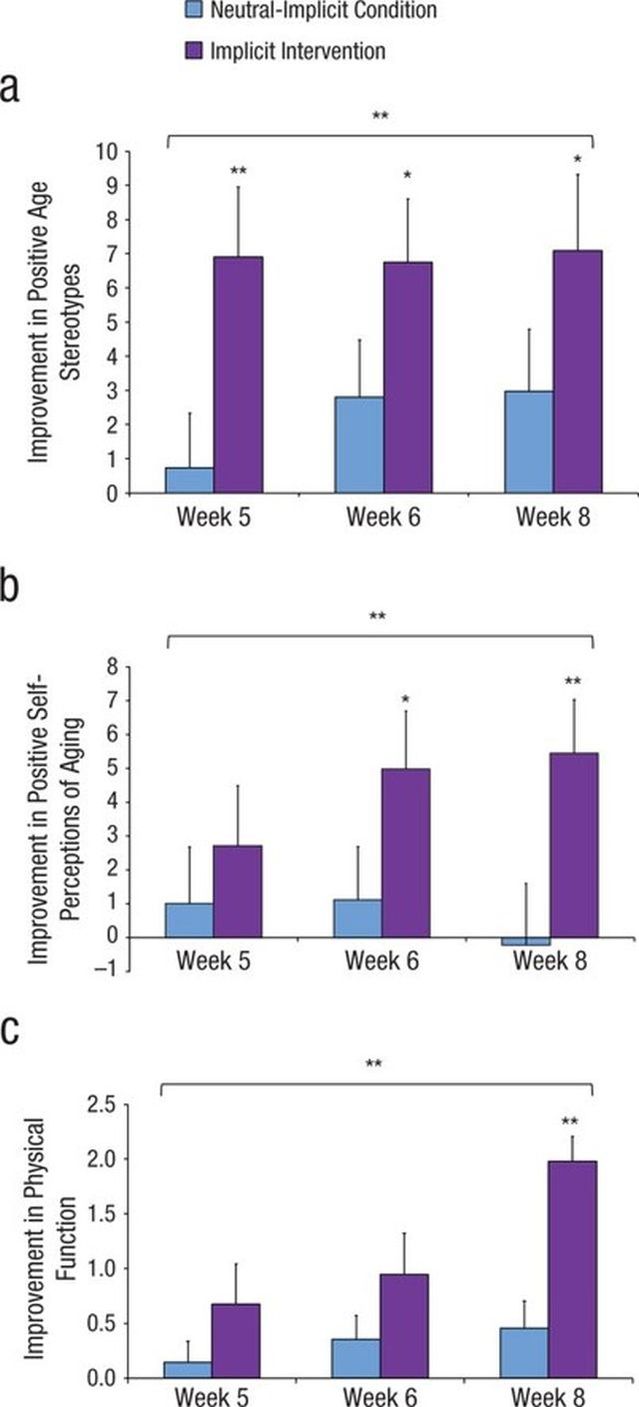Aging
The Secret to Successful Aging—Subliminal Messaging?
You’re only as old as other people think you are.
Posted June 8, 2016
Negative stereotypes don’t just hurt people’s feelings, they can undermine people’s performance. Tell an African American student that his performance on the GRE is diagnostic of intellectual ability, and his test performance will decline compared to similar students informed that the test is non-diagnostic. People are influenced by negative stereotypes about race and intelligence. The same stereotype threat has been shown to undermine the performance of women taking math tests, or Caucasians engaging in athletic endeavors.
If negative stereotypes can undermine performance, then maybe positive stereotypes can improve performance. That was the question posed by Becca Levy and colleagues in a study published in Psychological Science, a prestigious psychology journal. Specifically, they wondered whether older people (60 or over, meaning I missed the cut. Phew!) would experience improvements in physical functioning if exposed to positive stereotypes about aging. So they primed people to think about the upside of aging by asking them to write about “a senior citizen who is mentally and physically healthy.” An independent group of people read the essays and found them to exhibit very positive views of aging.
Stereotype threat thwarted, the researchers then measured people’s attitudes toward aging, and also several measures of physical functioning—like how many times they can get up and down from a chair in five seconds. They found no change in attitudes or functioning compared to a controlled group. Zilch.
The moral would seem to be that negative stereotypes undermine performance and positive ones can’t overcome them. In the case of stereotypes about aging, however, writing about a spry 70-year-old might only confirm negative stereotypes, by conjuring images of how rare such sprightliness seems to be. In fact, in a separate group of participants, the researchers did not promote explicit thinking about healthy aging but, instead, promoted such thinking implicitly. Subliminally, actually. They had such participants look at a computer and tell them whether a light flashed above or below a bull’s eye at the center of the screen. Unknown to the participants, the flashes were words—neutral words for people in the control condition, and words like “spry” for people in the positive aging group. Once a week for four or five weeks, participants came to the lab and went through this exercise. The researchers tracked attitudes and physical functioning over that period and another three weeks.
And guess what they found? Significant improvement in attitudes towards aging among people receiving the subliminal words associated with healthy aging. What’s more, participants exposed to the subliminal words got physically stronger over time. In fact, these benefits persisted, even grew, in the three weeks after the intervention ceased.

Aging is real. As people age, their skin gets thinner, their muscle mass decreases and the speed of their brain synapses slows down. But if people become fatalistic about aging, if they internalize the negative stereotypes of aging being thrust upon them by the outside world, their performance could potentially decline faster than their biology.
When it comes to aging, sometimes you’re only as old as you—subliminally—think!
***Previously published in Forbes***


